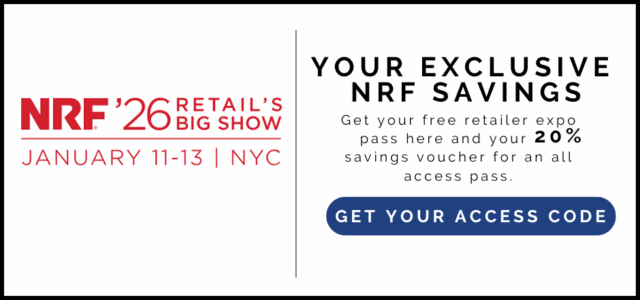By Melissa Boone, Managing Partner, Columbus Consulting

Effective inventory management is crucial to retail success, as it directly impacts sales performance, customer satisfaction, and profitability. Modern retailers employ a combination of strategies to synchronize supply with consumer demand across multiple channels while maintaining operational efficiency. Having a clearly defined inventory strategy, however, not only allows for a collective business focus but also aligns teams and empowers talent to make more autonomous decisions, keeping the organization on track to deliver consistent results.
When it comes to managing inventory, there’s no one-size-fits-all approach, and picking the right strategy can make all the difference in reaching your goals. Some retailers use their stores as showrooms, keeping just enough product on hand to showcase their assortment. Others focus on never running out of stock, knowing that saving every sale counts.
For many brands, ecommerce acts as a virtual aisle, offering endless size and color options that go beyond what’s available in-store. Some take a “top-down” approach, ensuring their highest-performing stores are stocked first. Others take it a step further by assigning “personas” to each location — curating product mixes based on a store’s unique style, color preferences, and past sales.
Bottom line? The most successful retailers are intentional about how they stock and fulfill across every channel — and they use data to guide those decisions.
SO, WHAT’S YOUR INVENTORY STRATEGY?
Key strategies include: “Never Out of Stock”, localization of assortment, seasonal assortment planning, managing breadth and depth of assortment, pricing and promotion planning, and sales channel management.
- Never Out of Stock (NOOS) refers to maintaining consistent availability of core, high-demand products. These typically include everyday essentials or bestsellers with steady sales velocity. Retailers use real-time inventory systems, automated replenishment, and safety stock strategies to prevent stockouts. NOOS not only reduces lost sales but also builds customer trust and loyalty.
- Localization of assortment involves tailoring the product mix at each store or region based on local customer preferences, demographics, cultural trends, and weather patterns. This data-driven approach ensures that the inventory reflects regional demand, reducing excess stock and improving turnover while enhancing customer satisfaction with more relevant product offerings.
- Seasonal assortment planning anticipates shifts in consumer demand during specific times of the year — holidays, back-to-school periods, or summer months. Retailers prepare months in advance by forecasting demand, securing inventory, and planning promotions. This strategy requires agility to respond to changes in customer behavior and minimize end-of-season markdowns.
- Breadth vs. depth of assortment concerns the range and variety of products offered. Breadth reflects the number of categories or styles carried, while depth focuses on the number of SKUs within a category. Retailers must strategically balance these elements: a broad assortment appeals to diverse customers, while a deep assortment creates expertise in specific product types. The right mix depends on brand identity, space constraints, and customer expectations.
- Pricing and promotion strategies are critical to managing inventory levels and influencing purchase behavior. Pricing impacts sell-through rates, especially for NOOS and seasonal products. Promotions—whether planned or reactive—must align with inventory positions to prevent overstocking or stockouts. Many retailers are leveraging tools like dynamic pricing and markdown optimization to make real-time adjustments based on inventory levels, competitor pricing, and consumer demand.
- Sales channel management is increasingly important in an omnichannel retail environment. Retailers must coordinate inventory across physical stores, e-commerce platforms, mobile apps, and third-party marketplaces. Centralized inventory systems and demand forecasting tools help ensure that products are available where and when customers want them. Buy Online, Pick Up in Store (BOPIS), ship-from-store, and endless aisle capabilities require real-time visibility and seamless execution across channels.
In summary, successful retail inventory management requires a comprehensive approach that aligns product availability with demand across all channels. By integrating NOOS strategies, localized and seasonal assortments, optimized assortment structures, pricing and promotions, and coordinated channel management, retailers can drive sales, reduce waste, and deliver superior shopping experiences. The key is for an organization to know its core strategy or strategies and ensure that its cross-functional teams are aligned on that strategy. Once teams know what they are working toward and are provided the tools and processes to execute, they can deliver better results.
Experts like Columbus Consulting can help. We can assess your current processes and systems to help define a core inventory strategy tailored to your organization. We can also make appropriate system recommendations, including the selection of new software, implementation of enhancements, ensuring training is aligned with strategy, or helping you better leverage the systems you have to fully optimize performance with your current team.
Find out more about our services here.
ABOUT MELISSA BOONE
Melissa is a Managing Partner with Columbus Consulting and a seasoned retail planning and inventory management consultant. She specializes in leading cross-functional business teams through all stages of the solution implementation. Melissa has a broad range of hands-on experience in various retail categories and sectors including: luxury, fast-fashion, department stores, specialty retail and ecommerce. She is an expert in inventory, assortment and allocation planning. She has a unique ability to align stakeholders and deliver transformative, scalable solutions that drive scalable business results. https://www.columbusconsulting.com/team/melissa-boone/
ABOUT COLUMBUS CONSULTING
Columbus Consulting delivers solutions that drive true value and have been transforming the retail, grocery and CPG industries for over two decades. We are a retail consulting company of industry experts. Our approach is simple, if you do it, we do it. We are more than consultants; we are experienced practitioners who actually sat in our clients’ seats. We understand the challenges, know what questions to ask and deliver the right solutions. Columbus offers a unique, consumer-centric approach with an end-to-end perspective that bridges functional & organization silos from strategy to execution. Our specialties include: unified commerce, merchandising & category management, planning & inventory management, sourcing & supply chain, data & analytics, accounting, finance & operations, people & organization and information technology. Let us know how we can help you. To learn more, visit COLUMBUSCONSULTING.COM.

